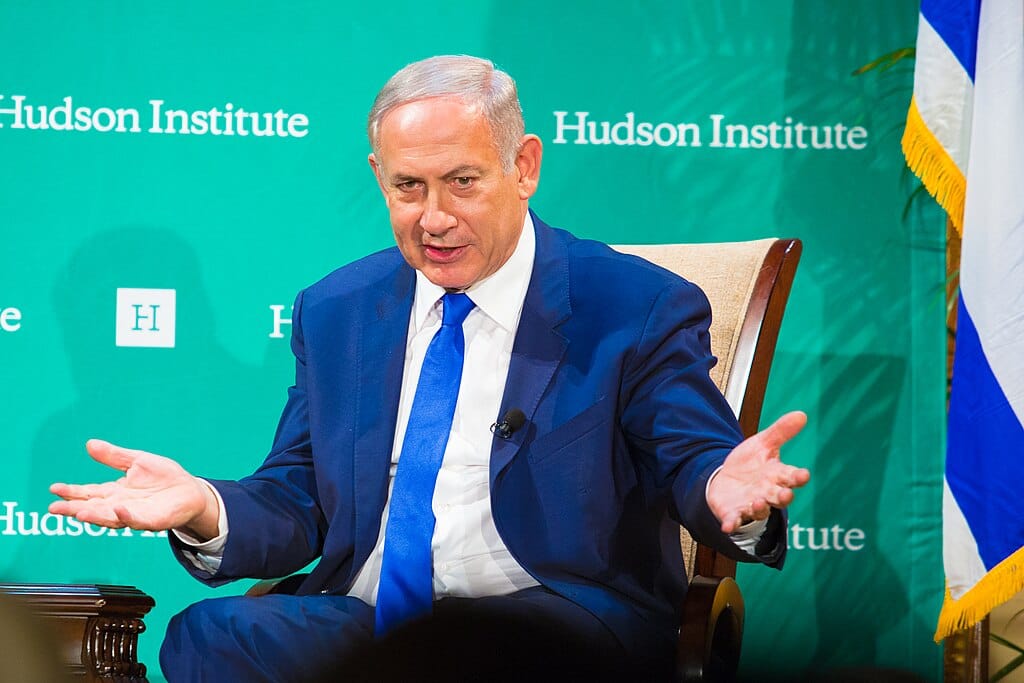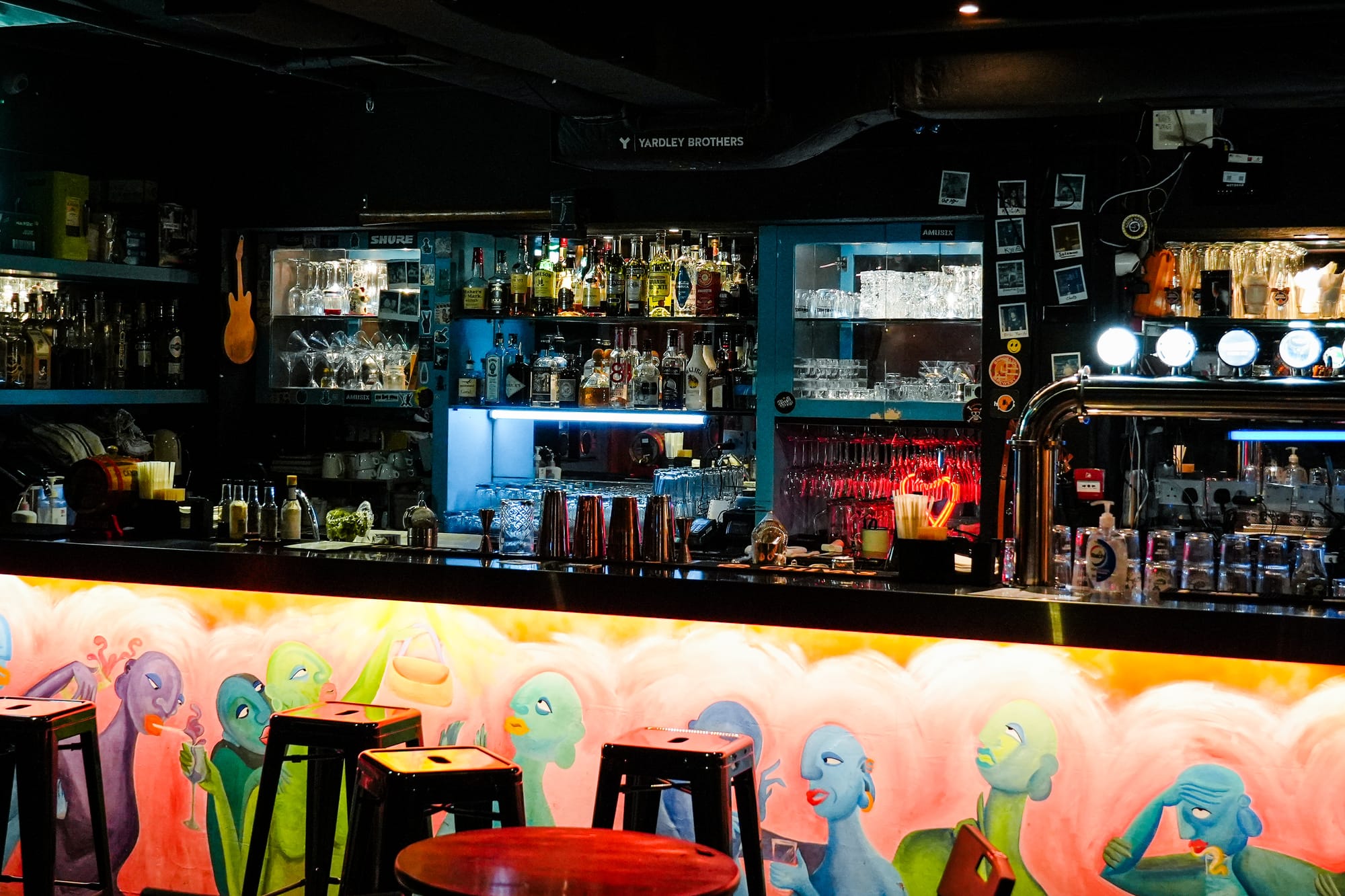From Iran and Israel's escalation to Dubai's massive downpour – here's your week's round-up

What happened?
Everyone is talking about Israel and Iran, and for good reason. For those who don’t know the specifics – on April 1, Israel conducted an airstrike on the Iranian embassy compound in Damascus, Syria. Several people from Iran’s Islamic Revolutionary Guard Corps (IRGC) died, including a high-ranking commander.
This strike is a part of Israel’s campaign against Iran and any targets related to Iran in neighboring Syria, and the campaign has been going on for quite some time. With this, there are often escalations that involve intense exchanges of fire, just like the one we saw recently.
From there, on April 13, Iran retaliated and fired 300 missiles and drones at Israel, most of which were intercepted by Israeli defenses as well as the British, the US and Jordan, so there wasn’t much damage.
But this specific incident can be considered more serious for a number of reasons, including the number of missiles and drones fired and the fact that the conflict isn’t usually directly between the two. Plus, now some reports are starting to come out and say that Israel has begun its retaliation by striking on Iranian soil already (although this is still a developing situation.)
But why did Israel strike in Syria?
Iran supports militant groups fighting against Israel in Gaza and along the Lebanese border. The country also has proxy groups in other countries in the region. Specifically, in Syria, Iran has built up a military presence because it backs President Bashar al-Assad. One goal of Iran is to use its proxies in Iraq and Syria to facilitate weapons transfers to help Hezbollah in Lebanon. So, to stop these transfers, Israel often strikes targets in Syria that it says are associated with Iran, although Israel is usually pretty hush-hush about actually taking responsibility for those strikes.
But ultimately, the conflict between Iran and Israel goes way back – to around the Iranian revolution in 1979. Since then, Iran has rejected the existence of Israel, training these militant groups to act against it, with many of them dead set on the total destruction of Israel. To add to all the drama, Israel captured an area called Golan Heights from Syria in the Six-Day War of 1967, which it later annexed. So, Iranian forces in Syria have fired on Israeli holds in Golan Heights before, which also prompted Israel to respond in turn.
Why is it important?
Aside from the general concern that tensions could escalate to a regional war across the Middle East and the humanitarian impact that would have, the region is also home to some of the world’s largest oil producers. This means that any instability in the region can affect oil production, shipping and prices, adding inflationary pressures.
On top of that, specifically, China’s massive Belt and Road Initiative (BRI) infrastructure project is all about boosting regional connectivity and economic opportunities in Asia, Europe and Africa. So, geopolitical stability is crucial. If things start boiling over in the Middle East, that could negatively affect investments and the project’s growth. Plus, Hong Kong also sees a lot of foreign investments, including from the Middle East, so instability in that region could lead to a reevaluation or even redirection of these investment commitments.
What is everyone saying about these recent attacks?
“As we have already officially announced the operation of the 'Honest Promise' was successfully carried out with the aim of punishing the aggressor. Now we firmly declare that the smallest action against Iran's interests will definitely be met with a severe, extensive and painful response against all its perpetrators.”
-Iran President Ebrahim Raisi
"Iran's legitimate defense and countermeasures have been concluded. Therefore, the Israeli regime must be compelled to stop any further military adventurism against our centers, assets and interests."
-Iran's Foreign Minister Hossein Amir-Abdollahian
Israel will “do everything necessary to defend itself … we will make our own decisions.”
-The office of Israeli Prime Minister Benjamin Netanyahu
“We, the Leaders of the G7, unequivocally condemn in the strongest terms Iran’s direct and unprecedented attack against Israel. Iran fired hundreds of drones and missiles towards Israel. Israel, with the help of its partners, defeated the attack. We express our full solidarity and support to Israel and its people and reaffirm our commitment towards its security.”
-G7 Leaders’ joint statement
Click here for the full story.

Hello TMS family! 🫶
On behalf of the whole TMS team, we would love to extend an invite to all of you for The Rescued Feast, an event between us, food-saving app CHOMP and charity More Good. One hundred tickets have already been sold, and we’ll also be selling the remaining (if any) at the door! Alex Nude, Cassio’s Music Director, will be behind the DJ booth alongside MC Benny Cullen at the event.
Some of the minds behind More Good are also behind the kitchen of our favorite yakitori joint in the city – Yardbird. Using food scraps from vendors on CHOMP, the team at More Good will turn what would’ve become wasted food into a high-end dining feast.
All proceeds will go to More Good, which will continue distributing quality food and meals to underprivileged populations and communities across Hong Kong.
Here is the ticketing info, and we hope to see you there!
Some of the biggest Headlines this week
👩💻Singapore further embraces flexible work: In 2017, the Singaporean government created a set of standards called the Tripartite Standards to encourage fair and progressive workplace practices, including flexible working arrangements. Now, fast forward, with companies forced into offering more flexible work arrangements during COVID, the Singaporean government is looking to build this flexibility more permanently, following some other European countries. On Tuesday, the government announced that starting in December, companies in Singapore need to set up some sort of process where employees can submit a formal flexible working arrangement request to their employers, including for remote work and four-day weeks.
📩Singapore’s new PM: Since gaining independence in 1965, Singapore has witnessed a stable political landscape with only a few leadership transitions. But on May 15, Prime Minister Lee Hsien Loong, who has been in power since 2004, will pass the baton to his deputy, Lawrence Wong. This marks only the third leadership change in the nation's history.
🍗The battle of the butter chicken: In Delhi, a heated culinary legal battle is unfolding over the origins of two Indian dishes – butter chicken and dal makhani – between two prominent restaurant chains: Moti Mahal and Daryaganj. Founded in 1947, Moti Mahal's owners, the Gujral family, filed a lawsuit in January in the Delhi High Court against Daryaganj. The lawsuit, spanning 2,752 pages, accuses Daryaganj of falsely claiming to have invented the dishes. The Gujral family asserts that it was Kundan Lal Gujral, a co-founder of Moti Mahal, who originally created them. They are seeking 20 million rupees (approximately US$240,000) in damages, alleging copyright infringement and unfair competition. The Gujral family further claims that Daryaganj not only appropriated the origin story of the dish but also copied the website layout and the ambience of Moti Mahal’s restaurants.
🏢Neom slows: Neom is the ambitious Saudi megacity project that aims to help the economy move away from being so dependent on oil and instead make it a hub for innovation and tech. But recent reports suggest that The Line, a futuristic city within Neom, which was meant to be 170 kilometers long with 1.5 million residents by 2030, will likely now only be 2.4 kilometers with less than 300,000 residents by that time. At least one contractor has started to dismiss some of the workers it employs on the site, according to Bloomberg.
🌦️Dubai’s intense downpour: In Dubai, freshwater resources are scarce. So you can only imagine the surprise when it recently faced its most severe rainfall ever recorded, resulting in widespread flooding and transportation disruptions. The intense weather left cars stranded on swamped streets and disrupted operations at Dubai International Airport. There's ongoing speculation that cloud seeding, a technique used to increase rainfall by injecting substances into clouds, might have played a role in exacerbating the downpour. But meteorologists say that it’s unlikely that the seeding had a significant impact. As many areas in the city lack efficient drainage, this can exacerbate the flooding potential.
🧑⚖️Trump’s criminal trial begins: Former US President Donald Trump’s first criminal case has started in Manhattan. What does it involve? Well, he’s being accused of paying off adult film actress Stormy Daniels and former Playboy model Karen McDougal to try and prevent them from speaking about having extramarital affairs with him and generating negative publicity. It’s the first time that a former US president is facing criminal charges, and it will likely be a closely watched legal battle, especially since he is running for president again.

📢Israel conflict bleeds into the office: Before we get into it, Project Nimbus is a joint contract between Google and Amazon to provide artificial intelligence (AI) and cloud services to the Israeli government. Now, there’s a group called No Tech for Apartheid which is led by activists and organizations aiming to try to stop tech companies from contributing to or supporting apartheid-like policies and practices. This group has been writing letters and protesting against Project Nimbus since 2021, and on Wednesday, Google fired 28 employees for “physically impeding other employees’ work and preventing them from accessing our facilities,” which is “a clear violation of our policies, and completely unacceptable behavior.”
📺Hong Kong’s KOL campaign: Last year, Hong Kong invited over 2,000 individuals, including social media influencers and international celebrities, to promote local tourism by creating over 330 short videos documenting their travel experiences in the city. These videos were then broadcast on over 3,000 different platforms worldwide, reaching an audience of more than 200 million viewers. But this move has led to calls for greater transparency regarding the use of taxpayers' money for such campaigns.
Enjoying our newsletter?
Forward it to a friend! After all, sharing is caring.
Anything else? Hit reply to send us feedback or say hello. We don't bite!
Written and put together by Christine Dulion, Alisha Khan, Elize Lanorias and Krystal Lai.











